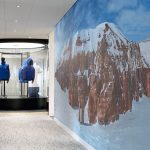VF Corp. announced its new global sustainability and responsibility strategy, Made for Change. The strategy was communicated in conjunction with VF’s Sustainability and Responsibility Performance Report.
Made for Change outlines VF’s aspirations for advancing environmental and social improvements across its business, portfolio of brands, global supply chain and communities worldwide. Among the new goals and targets established as part of the strategy are VF’s commitment to reduce its global environmental footprint by 50 percent, from farm to front door, by 2030, and to measurably improve the lives of one million garment industry workers and local community members by 2025. Additionally, VF has committed to a 35 percent reduction in the average environmental impact of key materials used to make its products.
“Respect for people and the planet has long been a guiding principle for VF, especially during the past decade as we’ve taken meaningful steps to embed environmental and socially responsible programs throughout every aspect of our global business,” said Steve Rendle, VF’s chairman, president and CEO. “We are accelerating our actions at VF by combining our relentless focus on innovation and operational excellence with responsible business practices to drive meaningful and lasting changes.”
VF’s Made for Change strategy centers on three focus areas the company will pursue with clear action plans:
- Circular Business Models: Fueled by a belief that the linear system of production – take, make, use, waste – is not sustainable for a planet with a growing population and limited resources, VF will pursue the commercialization of circular business models to continually reduce its environmental impact while creating new growth opportunities. This work includes a focus on branded rental and recommerce business strategies for its brands, in addition to emphasizing products that are designed to have a second life.
- Scale for Good: As one of the world’s largest apparel and footwear companies, VF will leverage its global scale and influence to drive meaningful changes across the industry. This includes dramatically reducing the impact of materials used to manufacture its products such as water and cotton, and decarbonizing across its supply chain to reduce greenhouse gas emissions. Additionally, VF will continue to take actions that ensure safe working conditions at its contract supplier factories and benefit factory workers and their communities including: access to clean water and sanitation; health and nutrition initiatives; and childcare and education.
- Movement Makers: VF and its brands will unite to serve as a catalyst for global movements that help more people pursue active lifestyles and access sustainable and responsibly sourced products. VF will support these efforts with strategic investments, targeted advocacy, philanthropic gifts and collaboration with public and private sector partners.
VF’s Made for Change strategy and its many components are detailed at sustainability.vfc.com. The website also provides a behind the scenes look at how VF created Made for Change, videos of its current sustainability efforts, and other educational resources.
VF has a proven history of operating its business with the highest environmental, social and ethical standards. The company’s actions have been recognized by some of the world’s leading authorities on corporate social responsibility. In 2016, VF was named to Corporate Responsibility (CR) Magazine’s 100 Best Corporate Citizens List, which recognizes U.S. public companies with standout corporate responsibility performance. VF was also named a 2017 World’s Most Ethical Company by the Ethisphere Institute, a global leader in defining and advancing the standards of ethical business practices. VF is one of only three apparel companies to make the list.
Photo courtesy The North Face















